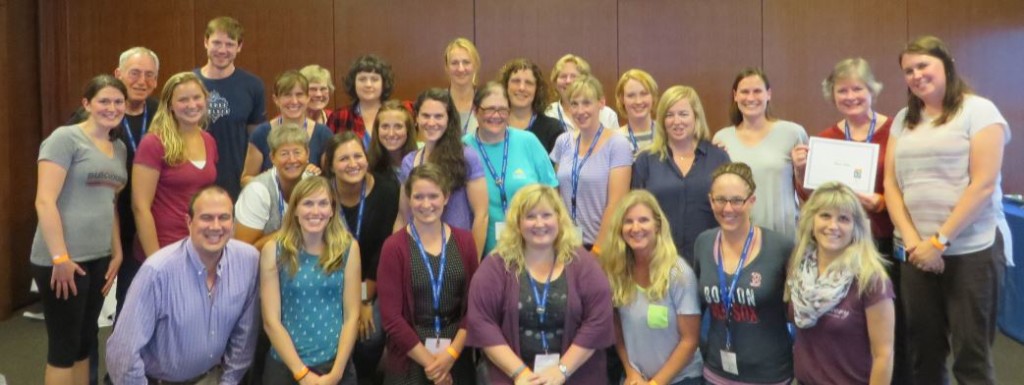A Week with Ken Ramirez: Ten Highlights from a Seminar for Professional Animal Trainers

Are you passionate about training animals with the most humane and science based methods? Or have you been considering attending Ken Ramirez’s Professional Animal Training Seminar?
As part of my ongoing commitment towards continuing education to keep PAW at the forefront of positive reinforcement training, this past August I had the opportunity to attend the one week Professional Animal Training Seminar at Shedd Aquarium with Ken Ramirez.
For those of you who might not know, Mr. Ramirez is a thirty-five plus year veteran of animal care and training and a leading voice in the positive reinforcement training profession. In the very near future (October 2014) Ken will become the Executive Vice-President and Chief Training Officer of Karen Pryor Clicker Training. His duties will include helping to oversee the vision, development, and implementation of training education programs for the organization. (Note: Portions of the previous paragraph have been adapted from http://kenramireztraining.com/about-ken/.)
Below is a snapshot of my notes for the week. It was a wonderful learning experience and a terrific opportunity to see cooperative care training in practice and to hear real life successful applications of positive training in action across many fields and disciplines.
1. Training equals teaching! This was one of the pivotal messages of the week.
2. Teaching animals how to live in our world is a shared and natural process.
3. The student needs to want to learn and it should be a fun partnership.
4. Training is one of the four cornerstones of animal care. Health care, nutrition, environment, and behavior management (training and enrichment) are all necessary parts, which collectively represent a good animal welfare plan.
5. There are many reasons for training, including physical and mental exercise and stimulation, and cooperative behavior (teaching animals things that help with their own care and management, husbandry, and medical needs).
6. Training and enrichment in animals’ lives is not optional, nor a luxury, but is a vital and key component.
7. Training includes both formal and informal interactions. Animals are learning all of the time and therefore it makes logical and ethical sense to set everyone up for success with a thoughtful, inclusive animal care plan.
8. Training utilizes the sciences of operant and classical conditioning.
9. The basic premise is that we can and should reinforce rather than punish to effect behavioral change. Whenever possible, focusing on achieving the desired behavior rather than eliminating the unwanted behavior will enable emphasis on relationship building, which is a pivotal part of training and teaching.
10. The animal is never wrong! Everything that the animal does is because it is in some way reinforcing. Implement a plan which reinforces behavior that you want to see repeated!
Whether you are a professional animal trainer or are interested in learning more about how to work with your own companion animal, Ken Ramirez’s book, Animal Training-Successful Animal Management Through Positive Reinforcement is a great resource.
